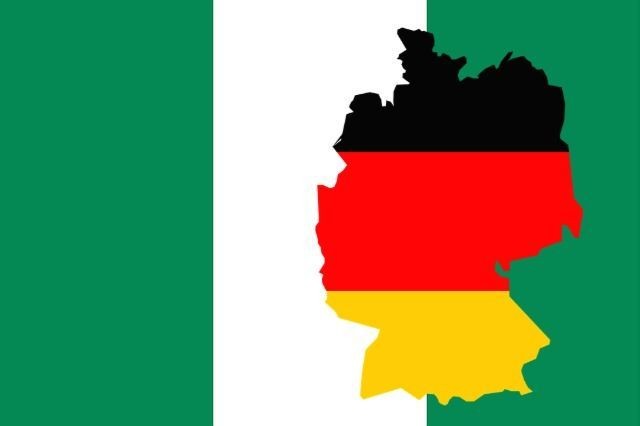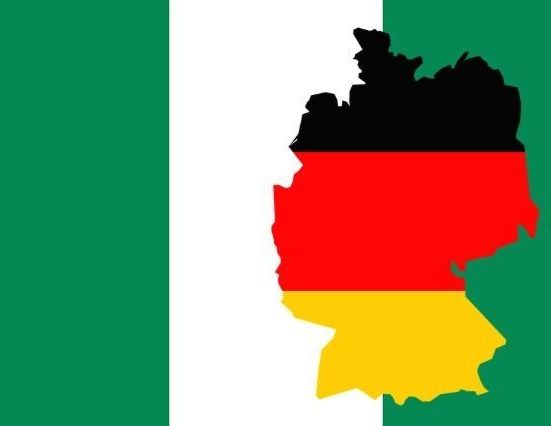The Federal Republic of Germany has signaled its intention to deepen collaboration with Nigeria across multiple sectors, with special emphasis on security enhancements, economic development, and climate resilience initiatives.
This significant diplomatic development emerged during an enlightening exchange on Nexteer’s “Crossing Perspectives” podcast, where the prominent Nigerian public policy think tank’s Managing Partner “Dr. Ndu Nwokolo” engaged in comprehensive dialogue with Ambassador Johannes Lehne, Deputy Head of Mission at the German Embassy in Abuja.
Speaking during the broadcast, Ambassador Lehne expressed optimism regarding Nigeria’s economic trajectory under President Bola Tinubu’s administration, noting observable improvements in key economic indicators.
We are witnessing encouraging signs of economic stabilization, the German diplomat remarked. Inflation figures are gradually declining, foreign exchange reserves have begun to stabilize and crucially, oil production volumes are demonstrating positive momentum.
Our correspondent gathered that these economic improvements have catalyzed renewed interest from German businesses seeking investment opportunities within the Nigerian market, with Ambassador Lehne confirming that Germany’s engagement strategy is evolving significantly.
Our approach is undergoing strategic transformation” he disclosed”. We are pivoting decisively from crisis management towards more sustainable business promotion and investment facilitation.
In a development certain to bolster Nigeria’s security architecture, the ambassador revealed that Germany has established a comprehensive military support framework with the Nigerian Armed Forces with indications of expanded assistance in the pipeline.
The defense cooperation between our nations continues to strengthen, Ambassador Lehne stated, adding that Germany has made substantial contributions towards enhancing “ECOWAS” counterterrorism capabilities through provision of specialized mobile headquarters facilities, field hospitals, and critical logistics infrastructure.
When questioned about potential reductions in funding for climate resilience and related programmes, the German diplomat offered reassurance regarding Berlin’s unwavering commitment.
The Green Party’s influence within our coalition government has secured approximately €100 billion dedicated to climate initiatives, resilience building, and gender-focused programmes, he clarified. As certain international partners reduce their footprint in these areas, Germany stands prepared to address resulting gaps.
On the crucial issue of irregular migration, Ambassador Lehne delivered a sobering caution to young Nigerians contemplating unauthorized routes to Europe.
We fully understand the aspirations driving such decisions, but must emphasize the extreme dangers involved, he warned. Criminal networks exploit vulnerable migrants, exposing them to life-threatening risks throughout the journey.
Instead, he revealed that both governments are actively formulating a structured legal migration framework designed to create legitimate pathways for skilled Nigerian workers seeking opportunities in Germany.
Energy transition support represents another cornerstone of German engagement, with Ambassador Lehne highlighting initiatives such as the ambitious West African Power Program aimed at regional electricity integration. Similarly, German expertise is being deployed to assess Nigeria’s critical minerals potential through advanced satellite mapping technologies and consultations with state governments.
According to diplomatic sources familiar with the discussions, security improvements and energy infrastructure development remain prerequisite conditions for attracting sustainable German investments at scale.
The conversation also addressed regional challenges confronting ECOWAS following the withdrawal of Burkina Faso, Mali, and Niger. Drawing parallels with Britain’s exit from the European Union, Ambassador Lehne emphasized that regional organizations must balance pragmatism with core principles.
Member states cannot selectively embrace benefits while evading responsibilities, he observed.
With Germany’s domestic political landscape poised for transition, Ambassador Lehne projected increased defense investments in response to evolving global security dynamics. This aligns with Berlin’s recent commitment of $2 million for a specialized defense support programme with Nigeria spanning 2025-2026, while maintaining robust counterterrorism assistance to ECOWAS.
Nigerian foreign policy analysts view these developments as potentially transformative for bilateral relations between Africa’s largest economy and Europe’s industrial powerhouse.

